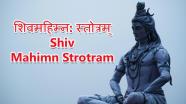In the Bhagavad Gita, Lord Krishna tells Arjuna that one should give up everything and surrender to Him, and if one were to do this, moksha is assured.
But what does giving up everything mean? Does one give up all dharmas and values after one surrenders? Not at all. What it means is that one should resort to total surrender at the feet of the Lord in order to be saved.
The meaning of the Lord’s words becomes clear, when we look at the context in which He says them. His words are addressed to Arjuna who is in the grip of ignorance.
Can such an ignorant one adhere to difficult paths to salvation like bhakti yoga and gnana yoga? There is one thing that Arjuna knows for sure, though.
He knows that Krishna is the Supreme One, the only One capable of granting moksha. But Arjuna does not know how to reach Him. So he knows the destination but he does not know how to get there, Valayapet Ramachariar said in a discourse.
Even assuming that he knows that there are paths like bhakti yoga and gnana yoga to reach Him, Arjuna is incapable of following these ways.
He is not a sage and cannot do intense penance. He knows that this life is impermanent and changing every minute. He knows that Sri Vaikunta is permanent and unchanging. But what should he do to get there? That is what the Lord shows him.
The Lord tells Arjuna, and through him the world, that the easiest way to reach Him is through total surrender at His feet. That will get rid of the ties that bind us to this world. All our sins and good deeds and the effects of both will no longer affect us.
Our sins can be got rid of in two ways. We can pay for our sins through our sufferings on this earth. Or we can try to atone for the sins in prescribed ways.
The problem for us is that we are likely to err even in the performance of acts of atonement. Such is our ignorance.
Moreover, even our good deeds are ties which we need to be released from to attain moksha.
Saranagati, or the path of complete surrender, is the way to break free from such ties and attain moksha.
Tags:-












